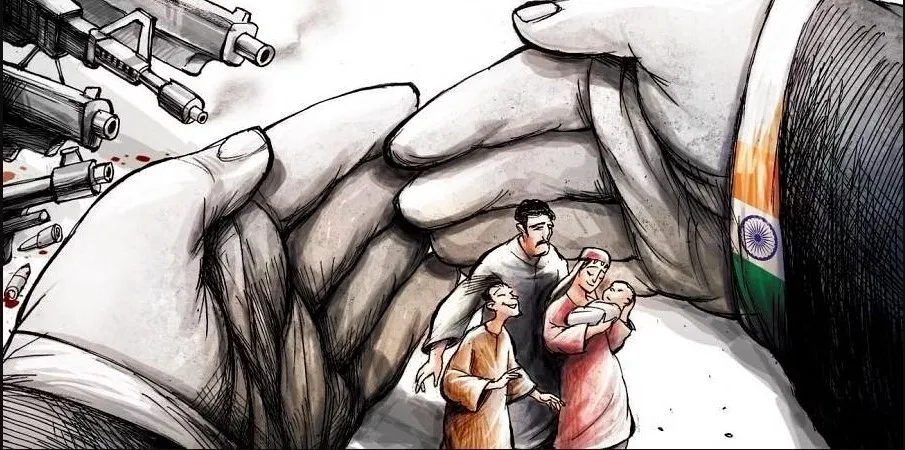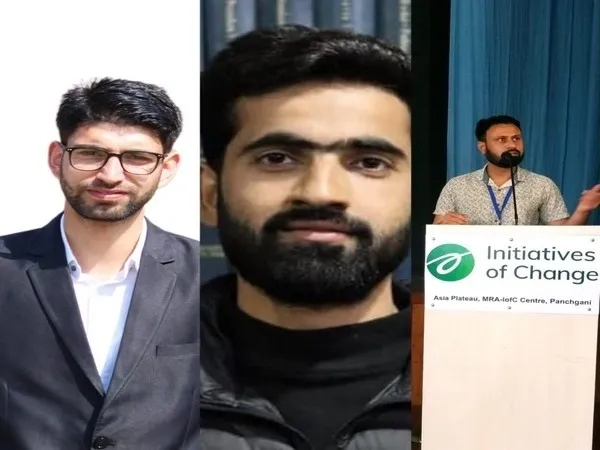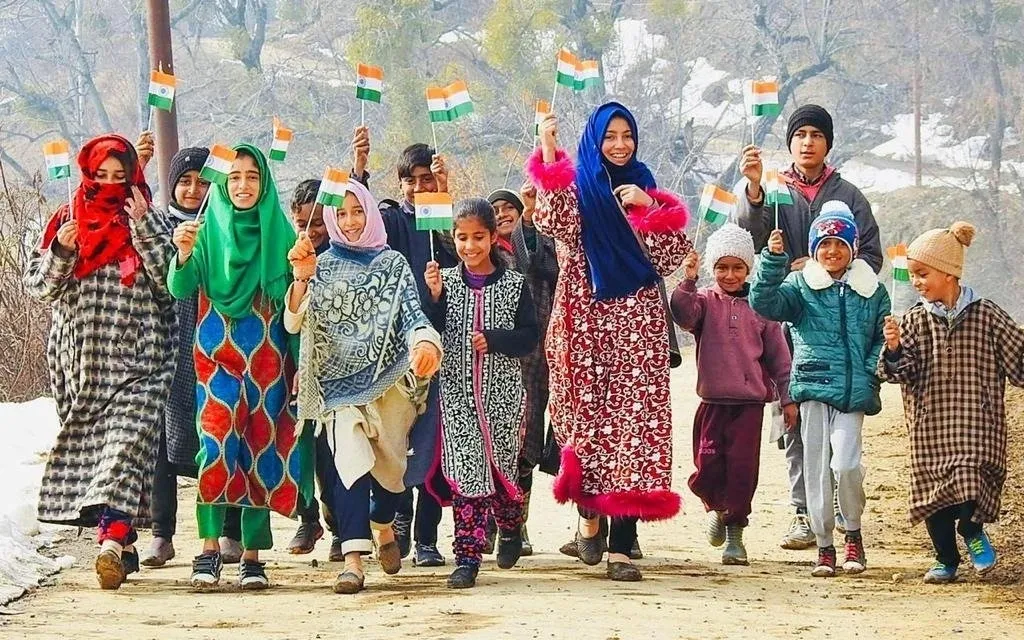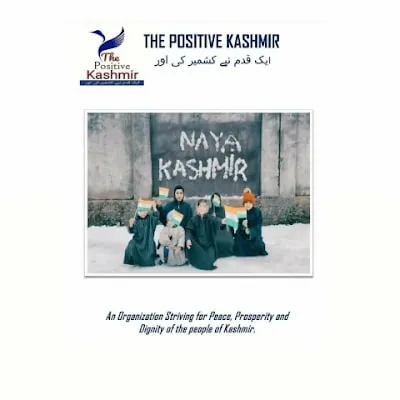The picturesque region of Kashmir in Northern India was in the past plagued by political, social, and cultural complexities, resulting in a challenging environment. The area has been a source of conflict between India and Pakistan due to illegal occupation of PIOK by the latter. Achieving peace in the region has been an ongoing endeavor, with stakeholders making efforts to establish stability and harmony. The revocation of Article 370 and 35A in August 2019 significantly impacted Kashmir. Article 370 granted J&K autonomous status, including its own constitution, flag, and exclusive powers. The removal of autonomy brought J&K under the umbrella of the Central Government. The abrogation of Article 370 of the Indian Constitution altered Kashmir’s relationship with the rest of India, yielding complex but positive effects. This article examines the multifaceted impact of revoking special status, shedding light on the resulting positive changes in various aspects of life in Kashmir.
The abrogation of autonomy has brought J&K fully into the folds of India, integrating the region with the Indian mainland. Earlier, the special status granted under Article 370 had created a sense of separation and distinctness, which hindered the region’s complete integration with the rest of India. Now, J&K shares the same governance and constitutional provisions as other states, fostering inclusivity and a stronger relationship between Kashmiris and the rest of India. The repeal of special autonomy in J&K resulted in a tectonic shift in the political landscape. The separate constitution for the region was abolished, and it was divided into two Union Territories: J&K and Ladakh. The central government took direct control after dissolving the state assembly. Previously, J&K operated under Governor’s rule, but now Article 356 allows for President’s rule during emergencies. The region lost its special privileges, including its own constitution and flag. This transformation altered power dynamics and governance in the area.
J&K’s separate constitution stemmed from its accession to India in 1947, with Article 370 granting special autonomy temporarily. Concerns grew over its effectiveness, hindering J&K’s integration and encouraging separatist tendencies. Abolishing the separate constitution aimed to foster unity and a sense of “One Nation, One Constitution.” This decision sought to ensure equal rights and opportunities for the people of J&K, aligning them with the rest of India. Despite positive implications, critics argue that it eroded autonomy, identity, and socio-political dynamics in J&K. They emphasize the need to address local grievances. Monitoring the impact and addressing challenges will be crucial in the aftermath of this significant constitutional change.
The abrogation of Article 370 in Kashmir has impacted voting rights in the region. Delimitation of constituencies, a process of redrawing boundaries for equal representation, was frozen for decades but initiated after the repeal. However, after the repeal of autonomy, delimitation aims to ensure fairer representation based on population. Supporters believe it will address the issue of disproportionate allocation, safeguard voting rights for all citizens and promote inclusivity. Yet, some express concerns about altering the demographic balance. Overall, the changes in voting rights, including delimitation and extension of central government schemes, were deemed necessary for fair representation and regional development.
The repeal of autonomy in J&K has empowered marginalized groups, such as women and minorities. Property rights in Kashmir have been complex, with legal and cultural factors shaping ownership. The changes now allow non-residents to purchase land, while discriminatory provisions against women marrying outside the state have been abolished. This has increased women’s empowerment and participation in decision-making. The reforms also promote equality and inclusivity for minorities, including displaced Kashmiri Pandits previously marginalized by Article 370. I brought in significant changes to domicile laws, promoting equality and inclusivity for all residents, including women. Previously, Article 370 limited the rights of women who married outside the state and their children to obtain domicile in J&K, leading to discrimination and loss of property and inheritance rights. However, the J&K Reorganization (Adaptation of State Laws) Order, 2020, ensures that women domiciled in J&K, regardless of marital status, are entitled to all benefits and rights. Domicile equality for women promotes gender equality, social integration, and upholds their fundamental rights as equal citizens, aligned with international conventions. Monitoring and evaluation are necessary to address challenges and ensure the welfare of women in the region.
The implementation of the J&K Reorganization Bill is seen as promoting socio-economic development in the region by opening new avenues for investment, economic growth, and development. Non-residents can now buy land and property, attracting new investments and improving infrastructure, industries, and tourism. This will surely create jobs and improve the standard of living. The government has announced initiatives like road, rail, and power projects, as well as measures to attract investment in agriculture, horticulture, and manufacturing. Significant infrastructure projects include the Zojila Tunnel, improving connectivity between Srinagar, Kargil and Leh and the Udhampur-Srinagar-Baramulla Railway Project, are promoting economic development. The construction of roads has improved connectivity, reduced travel time, and boosted tourism. Efforts to enhance power infrastructure aim to address shortages and improve reliability. Healthcare and educational infrastructure have also been developed, establishing hospitals, educational institutions, and AIIMS campuses. A proposal for a Central University in Ladakh is underway with a 750-crore investment.
The region has long grappled with terrorism and instability. However, terrorism-related incidents in Kashmir have notably decreased due to the revocation of autonomy. Official data reveals a 40% drop in Kashmiri youths joining terrorist ranks since the repeal of Article 370. The Indian government’s comprehensive approach played a vital role in reducing terrorism. The abrogation of autonomy empowered security forces to effectively counter terrorism through proactive and targeted operations. Improved coordination and intelligence sharing among security agencies have also thwarted terrorist activities and disrupted their networks. Additionally, the revocation of special status facilitated a proactive approach to addressing the root causes of terrorism, including socio-economic grievances. This has weakened the support base for terrorists and fostered peace-building efforts. In a nutshell, the repeal of special status has strengthened the security in the region, reduced terrorism, and positively impacted the region’s development and well-being.
Like they say there is always light at the end of a tunnel and certainly J&K sans the Article 370 has seen positive changes, including greater integration, economic growth, welfare measures, and political representation. However, the situation remains complex due to historical, political, and socio-economic factors. Stakeholders hold differing opinions on the abolition of autonomy and its aftermath. The long-term implications are evolving, and the situation remains fluid. While proponents believe in the long-term benefits, critics express concerns about autonomy, human rights, and the political situation. A comprehensive understanding requires considering multiple perspectives and sources of information. Lasting peace requires addressing underlying causes of conflict, promoting inclusivity, and fostering dialogue and reconciliation. All communities’ aspirations and concerns must be taken into account in the peace-building process. Engaging all stakeholders and creating avenues for dialogue and meaningful engagement are essential. Building trust, inclusivity, justice and respect for human rights are crucial for achieving sustainable peace in the region.




